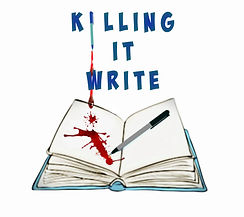Plotter or Pantser - Who is the Better Storyteller?
- Gina

- Jun 10, 2019
- 3 min read
Updated: Jul 23, 2025
Now, here’s a question that could be debated until the end of time. And if you ask me, one without a definitive answer. In fact, I’d be willing to bet that very few writers can truthfully put themselves in one category over the other without a few shades of the opposite bleeding in.
Besides, how can anyone say which is better when either has nothing to do with writing ability?
I often see new writers questioning: To outline or not to outline. Other common questions are: Where do I begin? How do I begin? When should I edit, before, during, or after?
Before? (Just kidding)
We are all individuals; our personalities differ, as do our quirks and eccentricities. This includes the way our brains process information, hence the way we learn and the way we go about performing everything from basic tasks like brushing our teeth to how we go about creating a good story.
Some of us plot and plan, outlining to the nth degree before beginning chapter one, whereas others (like me) might merely jot down a few notes, such as who the main characters are, where they are when the story begins, and what their end goals are. Then GO! And still, many others are found somewhere in between.
So, whether giving advice or taking it, remember: no way is the wrong way as long as it works for YOU.
Brief outlines, detailed outlines, chapter outlines, or no outline at all. Give each a try, and when you find what works for you, bravo! Again, no one choice is the wrong choice unless you find it just isn’t working for you. If that happens, try another.
As for self-editing, many will scold, “Don’t do it until you’ve completely finished your first draft!” Some edit in sections, each time they start a new writing session, by chapter, whatever. Some of us (again, like me) edit as we go. I can’t help myself. I can’t move on without doing it. I just can’t! And it isn't wrong for me. For me, it works, and therefore it's the right way to go. So, for those of you out there preaching not to edit while you write, can it.
Some of us write in sequence, some don’t. Some just write without concern for description of their characters or their scenery, body language, emotion, deep POV, whatever, they just get the primary purpose of the scene on paper (or should I say on screen?) Then, with the second, or maybe even the third draft, they go back and insert all of the rest. If that works for you, go for it. Not me, baby.
It may even take several projects before you figure out just what does work for you, and that’s fine. You should expect that to be the case. You’re not a slow learner or crazy for thinking you could succeed as a writer. You’re simply figuring it out.
Remember the saying, “practice makes perfect”? Well, there you go. Think of that as today’s fortune cookie. Practice by writing, writing, writing, and writing some more. Before you know it, you’ll find your rhythm. You’ll discover what works for that unique brain of yours, and who knows? Maybe you’ll even come up with some new and inventive way to gather all of the research you need without wasting time watching cute animal videos, and then you’ll share that expertise with the rest of us.
Dare I hope?








I'm a bleeder...(a right brainer). I taught the class "Writing from the right side of the Brain" in collage art departments. When I sit down to write a draft the words flow from my right brain down to my fingertips. My first drafts are always "Panster." When editing I use both my left and right brain but not at the same time, duh. The logic of the left let's you recognize complex rules of writing, and the right let's me create new material while I edit. (not at the same time) Thanks for letting this panster have a say. Love, Suzi